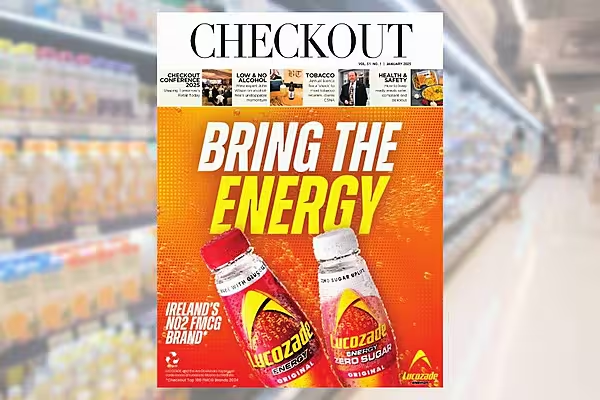With the Department of Jobs, Enterprise and Innovation developing a RIA on proposed legislation governing the grocery goods sector, Checkout examines the draft regulations already set out.
The end of February saw the closure of the consultation period on draft regulations governing the grocery goods sector, drawn up following the passing of the Competition and Consumer Protection Act last year. Following this process, the government is likely to undertake a Regulatory Impact Analysis (RIA) of the proposed regulations, vis-à-vis its implementation and subsequent impact on the relationships between retailers (specifically those with an annual turnover of €50 million) and suppliers.
Last year, Minister Richard Bruton told this magazine that the ultimate goal of any regulation is to “make sure contracts are fair. That’s in the best interests of the consumer. Having long-term sustainable growth for food supplies at cost-effective prices is in consumers’ interests, and that’s what we’re looking to secure.”
Ahead of this planned RIA, it’s worth taking a look at what the first draft of the regulations contain.
Behind the Jargon
Peppered with explanatory notes and definitions, the use of language contained within the report is deliberately open to interpretation, particularly its repeated use of the phrase ‘relevant grocery goods undertaking’, defined as a business ‘engaged in the wholesale or retail of grocery goods in the State that has, or is, a member of a group of grocery foods undertakings that has an annual worldwide turnover of more than €50 million’.
Without getting into specifics, to the layperson, it is clear that the author is talking about the multiples. Throughout the piece, when making references to issues such as payments for ‘better positioning of shelf space’, or for the ‘advertising or display of the grocery goods of the supplier in the premises of the relevant grocery goods undertaking’, these, in turn, are nods to the discussions that were had in Oireachtas Committee meetings with major retail groups in 2013, and in the years before that.
However, as RGDATA pointed out in its submission to the Department, the proposed regulations fail to clarify how independent retailers that meet the €50 million turnover threshold (either directly or indirectly) may be affected. As the representative group states, “There are some retailers that are serviced by wholesalers that would exceed the turnover threshold. […] The Regulations have been prepared to deal with the relationships between suppliers and large retailers/wholesalers – they were never intended to catch the relationship between wholesalers and retailers.”
In addition, the regulations also fail to address the position of independent retail groups, including many of Ireland’s family-run retail businesses around the country, which may operate a number of stores, resulting in a combined turnover above the €50-million threshold.
These groups, while large, still operate in the manner of independents, sourcing products from both large wholesalers and suppliers, as well as from local producers or small to medium-sized businesses in their area.
This is one of the cornerstones of what makes the independent retail sector as vibrant as it is, yet, as RGDATA notes, “an independent retailer who is part of a buying group will always seek the flexibility to source some aspect of their supplies locally from craft businesses, small local producers or suppliers. This flexibility in supply terms does not apply to vertically integrated retail outlets, where all the buying is done centrally.”
With this in mind, it adds that “applying the full rigour of the terms of the Regulations to local arrangements with small craft suppliers that are providing grocery goods to local shops that fall within the qualifying thresholds by virtue of their membership of a group could curtail future local supply arrangements by introducing a compliance burden disproportionate to the trading relationship involved.”
While the number of said independent groups is relatively small, they are powerful, and any additional regulation would impact significantly on their ability to offer a clear point of difference to that of the multiples – to say nothing of the impact on smaller suppliers.
Hello Money
Aside from the independent sector, one of the most striking clauses in the regulations – which will no doubt come under greater review during the RIA – is its discussion on ‘payment for shelf space’, or as it is traditionally known, ‘hello money’. As Article 15 states, ‘A relevant grocery foods undertaking shall not seek payment from a supplier for the retention, increased allocation, or better positioning of shelf space for the grocery goods of that supplier unless: a) the grocery goods contract contains terms that make express provision for such payment, and b) the payment is sought in accordance with those contract terms.’
Again, thinking in terms of the layperson, this article seems to suggest that hello money is permissible if it is included as part of contractual dealings between a retailer and supplier – which, far from eliminating the practice (one of the core goals of this legislation), would potentially see it grow.
Responsibility to deal with this will rest with the Competition and Consumer Protection Commission, which will ultimately be tasked with policing these sorts of negotiations, and red-flagging anything it deems untoward, such as hello money. Provided the proper level of enforcement is there, the ability for retailers and suppliers to implement clauses in contracts that fall outside fair practice should be nullified.
As IBEC group Food and Drink Industry Ireland noted in a statement, ‘The key to unlocking the consumer benefit of these regulations is effective enforcement. FDII has requested that the Competition and Consumer Protection Commission puts in place sufficient resources and begins investigations into practices in the sector immediately.’
The group added that since the abolition of the Groceries Order in 2006, ‘Many food companies have gone under and many jobs have been lost, partially due to the negative impact of abuses of buying power. That’s why we need these regulations put in place as soon as possible. At the moment, demands are still being placed on suppliers that would be banned under these regulations. Let’s not risk any more food-sector jobs by delaying their introduction.’
The recent announcement that UK Grocery Code Ombudsman Christine Tacon has launched an investigation into dealings conducted by Tesco in the UK also sets a precedent. Should this investigation bear fruit, there will be calls for the Commission here to adopt a similar hard-line stance, should misgivings occur.
Suppliers have long campaigned for legislation ‘with teeth’. It will be interesting to see how deep the bite marks will be.









